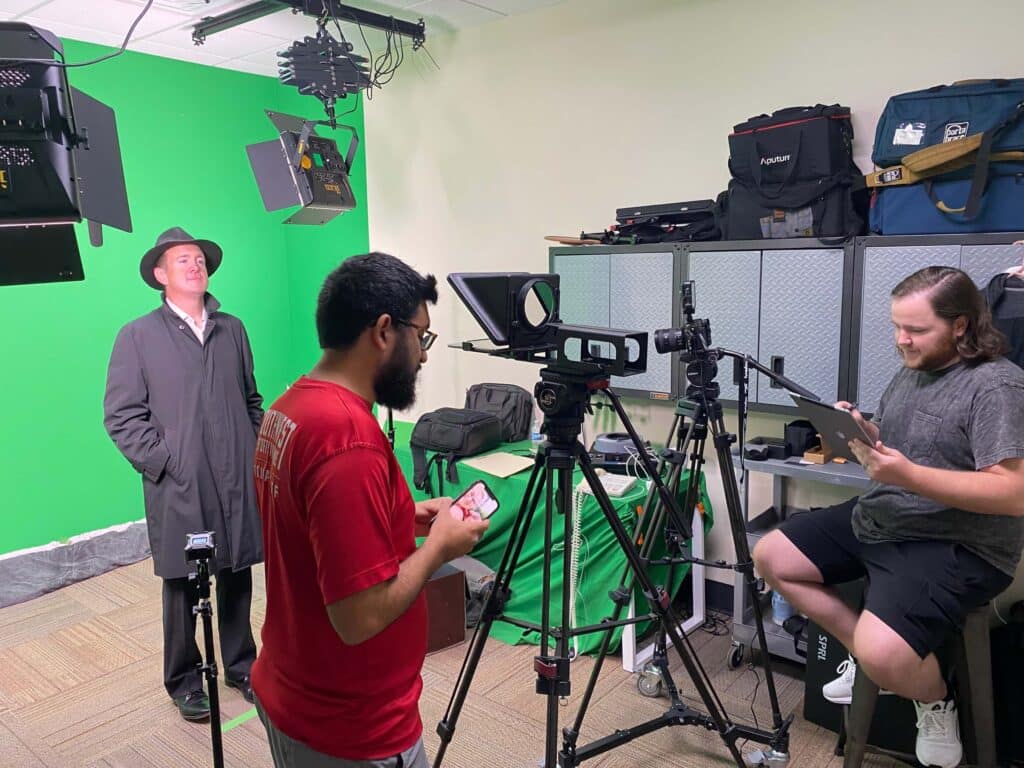These videos are based on Hamilton Lindley‘s blog encouraging you to becoming a leader and manager while also being happy and healthy.
Being a Leader: Being a leader means helping others and making good choices. Leaders are like the captains of a team. They show the way and help everyone work together. You can learn how to be a leader and make your school or playgroup better.
Being a Manager: Managers are people who make sure things run smoothly. Think of them as the helpers who keep everything in order. We will talk about how to be a good manager, like organizing your toys or helping with chores at home.
Taking Care of Your Feelings: Sometimes, things can be a little tough. It’s important to take care of your feelings and be happy. We will talk about how to stay calm and happy even when things are tricky.
Balancing Everything: Growing up means doing lots of things, like going to school, playing with friends, and helping at home. We will learn how to balance all these things so that we can have fun and be successful.

Videos of Hamilton Lindley
His blog is to help you learn how to be a good leader, manager, and keep your heart happy. We will share stories and easy tips to help you grow up strong and kind. Stay tuned for our fun articles that will teach you important things.
Some of these articles include how we can measure success in our lives, just like we measure it in school or work. It says it’s important to think about what truly matters to us, like family and our values, and not just focus on making money or getting good grades. Key takeaways from the article include:
- Life’s metrics should go beyond financial success and career achievements.
- Allocate your resources (time, energy, and talent) to what truly matters, such as family and personal values.
- Avoid the trap of pursuing short-term gains that may lead to long-term regret.
He writes an article is about what makes a good leader. It says that being smart (IQ) is not enough to be a great leader. You also need to be good at understanding and managing your own emotions and other people’s feelings. Key takeaways include:
- Leadership effectiveness is significantly influenced by emotional intelligence.
- EQ components include self-awareness, self-regulation, motivation, empathy, and social skills.
- Leaders can develop their emotional intelligence to improve their leadership skills.
Another article talks about why big companies sometimes have trouble coming up with new ideas. It’s because they often try to make their existing products better instead of trying new, different things. Key understandings from that article include:
- Disruptive innovations initially serve niche markets and are typically cheaper and simpler.
- Established companies should be aware of disruptive threats and develop strategies to address them.
- Companies can create innovation teams or divisions to explore disruptive opportunities without disrupting their core business.
Help Finding Videos About Hamilton Lindley
In another article, Hamilton Lindley writes about how some countries are better at certain businesses than others. It says that a country’s success in industries depends on factors like the skills of its workers and the support it gives to businesses. Those key takeaways include:
- Nations can achieve competitive advantage by creating favorable conditions for industries to thrive.
- A nation’s economic prosperity is influenced by its domestic and international competitive dynamics.
- Government policies and investments play a critical role in shaping a nation’s competitive advantage.
Another article talks about the five things that affect how a business does in its industry. These include how easy it is for new companies to join the industry and how much power customers have. The takeaways for this blog post include:
- Industry structure significantly impacts a company’s competitive strategy.
- A firm’s profitability is influenced by the collective strength of the five competitive forces.
- Identifying and managing these forces can help companies develop a sustainable competitive advantage.
In this article, Hamilton P Lindley writes about how companies should think more about what customers want instead of just selling products. It says that businesses can get stuck if they focus too much on their products and not enough on their customers.
- Companies must define their business based on customer needs, not just products or services.
- A myopic focus on products can lead to market decline and missed opportunities.
- Constantly adapting to changing customer preferences is essential for long-term success.
In another blog post, he talks about how some companies create new markets instead of competing in crowded ones. It’s like finding an empty, blue ocean to swim in instead of a red one full of other swimmers. Key takeaways include things like:
- “Red oceans” represent competitive markets with intense rivalry, while “blue oceans” represent untapped market opportunities.
- Value innovation involves simultaneously reducing costs and increasing value for customers.
- Blue ocean strategy focuses on creating new demand, not just competing for existing demand.
- Adaptive challenges require a shift in mindset and behavior, often involving resistance and discomfort.
- Leadership involves creating a safe space for addressing adaptive challenges and enabling learning.
- Adaptive leadership is about mobilizing people to solve problems they might not initially understand or embrace.
In another article, Hamilton Lindley writes about how leaders can help their teams deal with big changes. It says that leaders need to create a safe space for people to learn and adapt when things are changing.
- Adaptive challenges require a shift in mindset and behavior, often involving resistance and discomfort.
- Leadership involves creating a safe space for addressing adaptive challenges and enabling learning.
- Adaptive leadership is about mobilizing people to solve problems they might not initially understand or embrace.
He talks about what motivates people. His article says that we have different needs like food and safety, but also needs like being creative and reaching our full potential. Key points to remember are:
- People have a hierarchy of needs, and unmet needs motivate behavior.
- Managers can tailor their leadership and motivation strategies to address employees’ specific needs.
- Self-actualization needs, such as personal growth and purpose, are increasingly relevant in the modern workplace.
Hamilton Lindley’s Thoughts on Leadership
Hamilton’s article is about what makes a company special. It says that companies should focus on what they do best and keep getting better at it, instead of trying to do too many different things. Important issues to consider include:
- Core competencies are the collective knowledge and skills that distinguish a company from competitors.
- Focusing on core competencies can lead to competitive advantage and growth through innovation.
- Companies should continuously invest in and nurture their core competencies.
These articles have important ideas that have helped businesses and leaders do better. They tell us about things like how to be a good leader, how to come up with new ideas, and how to make a company successful.
